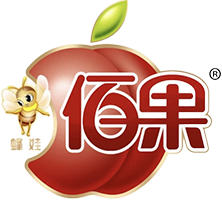The Ultimate Guide to Healthy Snacking: Why Dried Fruits Are Your Best Bet
Release time:
2025-10-01
The Ultimate Guide to Healthy Snacking: Why Dried Fruits Are Your Best Bet Table of Contents Introduction to Healthy Snacking What Are Dried Fruits? Nutritional Benefits of Dried Fruits Vitamins and Minerals High Fiber Content Health Benefits of Dried Fruits Heart Health Weight Management
The Ultimate Guide to Healthy Snacking: Why Dried Fruits Are Your Best Bet
Table of Contents
- Introduction to Healthy Snacking
- What Are Dried Fruits?
- Nutritional Benefits of Dried Fruits
- Health Benefits of Dried Fruits
- How to Choose Quality Dried Fruits
- Delicious Dried Fruit Snack Ideas
- Storage Tips for Dried Fruits
- Conclusion
- FAQs
Introduction to Healthy Snacking
In today’s fast-paced world, **snacking** has become a common practice. Many people seek out quick and convenient options that are both delicious and nutritious. **Healthy snacking** is essential for maintaining energy levels and preventing unhealthy eating habits. Among the myriad of choices available, dried fruits stand out as a **nutrient-rich** option. This guide delves deep into why dried fruits are your best bet for healthy snacking.
What Are Dried Fruits?
Dried fruits are fruits that have had most of their water content removed through various drying processes. This concentration of flavor and nutrients makes them an appealing snack. Common examples include raisins, apricots, figs, and dates. The drying process not only preserves the fruit but also enhances its sweetness, making it a delightful treat.
Nutritional Benefits of Dried Fruits
Dried fruits are packed with essential nutrients that contribute to overall health.
Vitamins and Minerals
Dried fruits are rich in vitamins and minerals, such as vitamin A, potassium, and iron. For instance, apricots are an excellent source of vitamin A, essential for maintaining healthy vision and skin. Similarly, prunes provide a significant amount of potassium, which is vital for heart health.
High Fiber Content
Another noteworthy aspect of dried fruits is their high **fiber content**. Fiber is crucial for digestive health and helps in maintaining a healthy weight. A single serving of dried figs, for example, can provide a substantial amount of dietary fiber, promoting satiety and aiding digestion.
Health Benefits of Dried Fruits
Incorporating dried fruits into your diet offers numerous health benefits.
Heart Health
Regular consumption of dried fruits can contribute to heart health. Studies suggest that the antioxidants found in dried fruits, especially in raisins and cranberries, can help lower blood pressure and reduce cholesterol levels. These benefits are attributed to compounds that combat oxidative stress and inflammation.
Weight Management
Dried fruits can also assist in weight management. Their high fiber content promotes feelings of fullness, reducing the likelihood of overeating. When consumed in moderation, they can serve as a satisfying snack that curbs cravings without leading to excessive calorie intake.
How to Choose Quality Dried Fruits
Selecting quality dried fruits is essential for maximizing health benefits. Here are some tips for making the best choices:
- Look for no added sugars: Many commercially available dried fruits contain added sugars, which can counteract their health benefits.
- Check for preservatives: Opt for organic options that avoid artificial preservatives.
- Examine color and texture: Quality dried fruits should have vibrant colors and a chewy texture. Avoid those that appear too dry or overly sticky.
Delicious Dried Fruit Snack Ideas
Dried fruits can be enjoyed in various ways. Here are some scrumptious ideas for incorporating them into your diet:
- Trail Mix: Combine dried fruits with nuts and seeds for a nutritious trail mix that fuels your adventures.
- Yogurt Parfaits: Layer dried fruits with yogurt and granola for a delightful breakfast or snack.
- Baking: Add dried fruits to muffins, bread, or cookies for a natural sweetness.
- Salads: Toss dried cranberries or apricots into salads for an added burst of flavor and nutrients.
Storage Tips for Dried Fruits
To preserve the freshness and nutritional quality of dried fruits, proper storage is vital:
- Keep in an airtight container: Store dried fruits in an airtight container to prevent them from absorbing moisture and losing flavor.
- Store in a cool, dark place: A pantry or cupboard away from direct sunlight is ideal for maintaining their quality.
- Check for spoilage: Regularly inspect your dried fruits for any signs of spoilage, such as mold or an off smell.
Conclusion
Dried fruits are more than just a sweet treat; they are a powerhouse of nutrition that can significantly enhance your snacking experience. Their rich nutrient content, combined with various health benefits, makes them an ideal choice for those seeking healthier snack options. By incorporating dried fruits into your diet in creative and enjoyable ways, you can satisfy your cravings while supporting your overall health.
FAQs
1. Are dried fruits healthy for daily consumption?
Yes, dried fruits can be a healthy addition to your daily diet when consumed in moderation. They provide essential nutrients and can satisfy sweet cravings.
2. How do dried fruits compare to fresh fruits?
While dried fruits are more concentrated in sugars and calories, they retain many vitamins and minerals. Fresh fruits provide more water content and are lower in calories.
3. Can dried fruits be harmful?
Dried fruits can be high in calories and sugars, so it's important to consume them in moderation. Always check for added sugars and preservatives.
4. How many servings of dried fruits should I eat daily?
A standard serving of dried fruit is about ¼ cup. Aim for 1 to 2 servings per day as part of a balanced diet.
5. Are there any allergens associated with dried fruits?
Some dried fruits may be processed in facilities that handle nuts or other allergens. Always check labels if you have food allergies or sensitivities.
By exploring the world of dried fruits and their myriad benefits, it becomes clear why they are a superb choice for health-conscious snackers.


